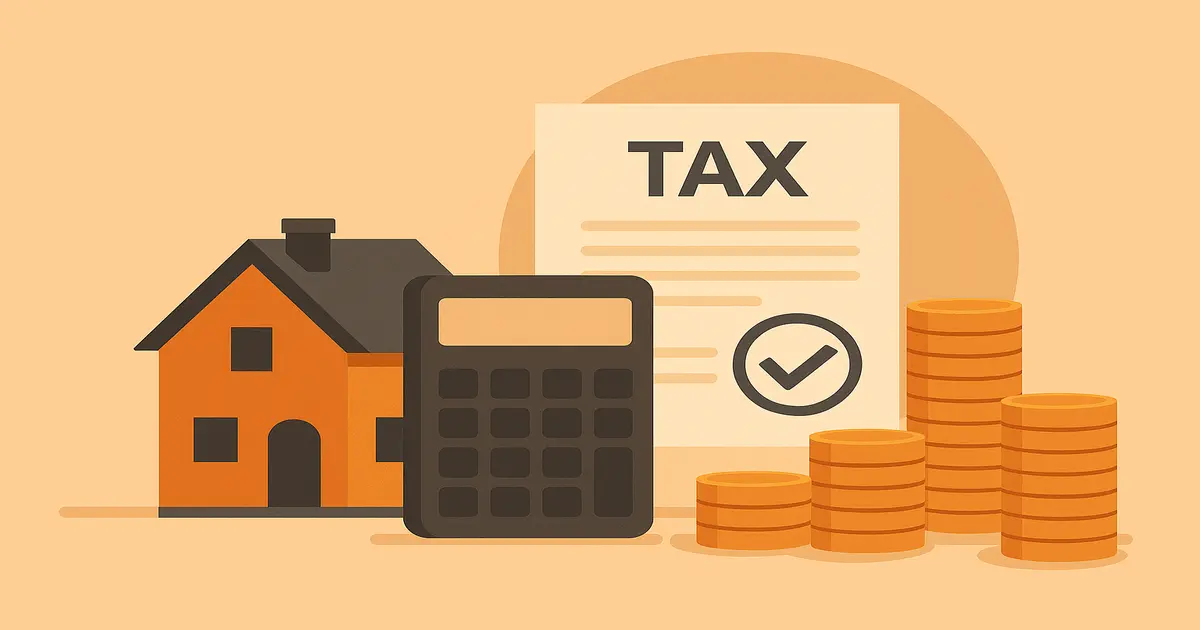Section 24C, 11(a), and Other Key Tax Sections Every Landlord Should Understand
Landlords in South Africa face a complex tax landscape. Understanding Section 24C, 11(a), and other key tax sections every landlord should understand is essential for compliance and for maximising property-related deductions.
We explore how SARS Section 11a works, how Section 24C applies, and how landlords can use these rules to legally reduce their tax burden. SARS Section 11a offers significant benefits to rental property owners, and knowing how to use it correctly is vital.
Understanding SARS Section 11a for Property Owners
SARS Section 11a is the backbone of landlords’ allowable deductions. SARS Section 11a permits expenses that are incurred in the production of rental income. This key provision allows landlords to deduct genuine operating costs.
SARS Section 11a requires two simple tests. The expense must be directly linked to earning rental income, and it must not be of a capital nature. SARS Section 11a, therefore, covers day-to-day maintenance, agent fees, insurance, cleaning, rates, and security.
This is why SARS Section 11a remains one of the most potent tools for landlords seeking tax efficiency.
How Section 24C Works for Landlords
Section 24C deals with future expenditure. Many landlords overlook this provision. If a landlord receives income now but must carry out specific work in the future, Section 24C may allow that future expense as a deduction in the current year.
This applies mainly to landlords who provide additional services or contractual obligations tied to income received upfront.
Section 24C requires a direct connection between the income already received and the future expenditure. When used correctly, it helps landlords smooth their tax liability and avoid paying tax too early.
Why Understanding Section 24C, 11(a), and Other Key Tax Sections Every Landlord Should Understand Matters.
Using Sections 24C, 11(a), and other key tax sections, every landlord should understand that these provisions give property owners a legal advantage. The ability to deduct operating and future expenses ensures that only actual net rental income is taxed.
Ignoring these rules may cause landlords to overpay tax. SARS focuses heavily on rental deductions, so applying these sections correctly avoids penalties. Knowledge of SARS Section 11a alone can transform a landlord’s tax position.
Other Key Tax Sections Every Landlord Should Understand
Landlords also rely on several additional tax sections to remain compliant. Section 13quin allows deductions for improvements made to non-residential buildings.
Section 13sex supports new residential units. These sections enable deductions to be spread over many years when capital improvements are made.
Section 23(b) addresses non-deductible expenses. This includes private expenses and costs not related to earning rental income. Understanding Section 23(b) is essential to avoid SARS disputes.
Section 25 allows apportionment when a property is partly used for private purposes. This applies to landlords renting out a portion of a home. Knowing how these rules apply ensures correct tax submissions.
Common Mistakes When Applying SARS Section 11a and Section 24C
Many landlords misunderstand SARS Section 11a by claiming capital expenses such as renovations or extensions. SARS Section 11a does not allow capital deductions; these expenses must be claimed under the appropriate building-related sections.
Section 24C is often misused when the future expenses are not contractually linked to income already received. SARS requires evidence of the link. Without it, the claim will be rejected. Landlords must also keep clear records to support every deduction.
Practical Tips for Applying Section 24C, 11(a), and Other Key Tax Sections Every Landlord Should Understand
Apply SARS Section 11a to all legitimate business expenses. Keep receipts and invoices. Ensure the expense was necessary and clearly linked to rental income.
Use Section 24C only when future expenditure is contractually required. Maintain the contract showing the obligation. Make sure the income received relates directly to the future cost.
Review other relevant sections, especially Section 23(b), Section 13quin, and Section 25. These rules create a complete compliance picture for landlords.
How These Sections Reduce Your Tax Bill
Section 24C, 11(a), and other key tax sections every landlord should understand allow landlords to reduce taxable income through lawful deductions.
SARS Section 11a is especially effective because it covers most routine rental expenses. Section 24C helps manage timing differences, which is valuable when dealing with upfront income or contractual duties.
Understanding these tools enables landlords to operate more efficiently. Once applied correctly, the impact on yearly tax savings can be substantial.
Conclusion
Section 24C, 11(a), and other key tax sections every landlord should understand form the foundation of tax efficiency for rental property owners. SARS Section 11a delivers ongoing benefits. Section 24C supports landlords who face future contractual expenses.
Together, these provisions ensure that landlords are taxed only on genuine rental profit. A clear understanding of these sections keeps landlords compliant and financially secure.
Don’t go through it alone — South Africa’s landlords stand together.
When you join the Landlords Association of South Africa, you gain more than just membership; you gain a robust network of support. From expert legal advice and vital landlord resources to guidance on dealing with problem tenants, we stand with you every step of the way.
For just 2 rand a day, you can access professional advice, proven tools, and a community that understands the challenges of both commercial and residential property management.
Join today and experience the confidence of knowing you’re never facing it alone.
Our Top Read Blogs:
How to Sell a House in South Africa Fast
Complete Process of Tenant Eviction in South Africa
What Can I Do If A Tenant Is Neglecting My Property
Useful External Links
Disclaimer:
This post is for general use only and is not intended to offer legal, tax, or investment advice; it may be out of date, incorrect, or maybe a guest post. You are required to seek legal advice from a solicitor before acting on anything written hereinabove.




